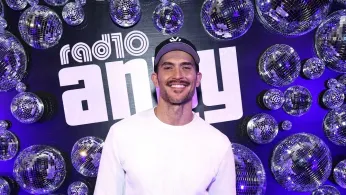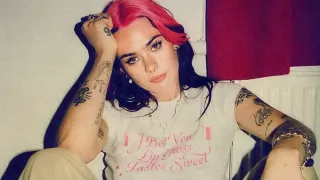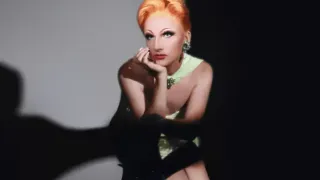
3 hours ago
Cheyenne Jackson’s ‘Gay Voice’: Why Queer Authenticity Is the New Revolution
READ TIME: 3 MIN.
Cheyenne Jackson is no stranger to a spotlight. Whether dazzling audiences on Broadway, lighting up TV screens in “American Horror Story,” or crooning Sinatra on stage, Jackson’s star has always burned bright. But for years, there was a quieter struggle behind the scenes—a battle with the voice he was born with and the world’s expectations of how a “real man” should sound.
This week, Jackson made headlines for declaring he’s “done” with internalized homophobia, specifically the shame and anxiety around his “gay voice.” In his own words: “But you know what? F*ck that. My internalized homophobia is done.” It’s more than a celebrity soundbite—it’s a rallying cry for anyone who’s ever doubted that their most authentic self was worthy of applause.
Let’s get real: the anxiety over having a “gay voice” is a shared experience for countless LGBTQ+ folks. From playground taunts to casting calls, from family dinners to boardrooms, the nuanced ways we sound have been policed, mocked, or deemed “too much.” For many queer people, especially cis gay men, the pressure to “pass” as straight doesn’t just shape wardrobes or relationships—it creeps into the very timbre of our voices.
Jackson’s confession resonates because it’s so familiar. He once felt relief at “passing” for straight, a feeling rooted in the survival tactics many of us learn early. But survival isn’t the same as living. Jackson’s public shift—throwing off those old shackles—offers hope, humor, and solidarity. It says: if you’re tired of twisting yourself into knots to fit in, you’re not alone. And you’re not wrong for wanting out.
The “gay voice” stereotype isn’t just a punchline—it’s a weapon used to shame people into silence or conformity. The pressure to sound “straight” has led many to code-switch, lower their registers, or avoid speaking authentically. But LGBTQ+ culture has always thrived on self-expression, from camp and drag to poetry slams and TikTok monologues.
Jackson’s embrace of his voice is a rejection of a culture that tells us to tone it down. He’s joining a lineage of queer icons who’ve refused to shrink themselves: think Billy Porter’s unapologetic flamboyance, RuPaul’s “If you can’t love yourself…” mantra, and the everyday bravery of trans and nonbinary folks who navigate misgendering and vocal dysphoria. Each time someone like Jackson says, “I’m done,” it chips away at a wall built from decades of shame.
For years, Hollywood and mainstream media rewarded queer performers who could “pass” as straight. The message was clear: gay is okay, but only if it’s invisible. Jackson’s story exposes the cost of that invisibility. It’s exhausting, it’s isolating, and ultimately, it’s not freedom.
Now, more LGBTQ+ stars are refusing to play by those rules. Jonathan Groff, Matt Bomer, Bowen Yang, and Laverne Cox have all spoken out about the pressures to hide or modulate their voices for mainstream acceptance . Their courage opens doors for new generations—kids who deserve role models that sound like them, not like some sanitized version of “normal.”
There’s power in queer voices. Not just metaphorical, but literal. Our accents, inflections, and expressiveness are part of a rich cultural tapestry. Ballroom culture gave us shade and realness; queer Black and Latinx communities shaped the cadences of pop culture; trans women and nonbinary trailblazers are redefining what “voice” means in every sense.
Jackson’s liberation is a celebration of this diversity. It’s a reminder that there’s no wrong way to sound queer. Whether you’re soft-spoken or booming, femme or masc, your voice is valid. And it deserves to be heard—in boardrooms, classrooms, on Broadway, and at family dinner tables.
Jackson’s coming out (again, in a way) isn’t just about him—it’s about all of us. Every time a queer person drops the act and lets their real voice ring out, it makes space for someone else to do the same. It’s an act of resistance and radical love.
So, next time you catch yourself worrying about sounding “too gay,” remember: Cheyenne Jackson is done with that nonsense. Maybe you can be, too. The world needs your voice—it’s the soundtrack to a future where queer authenticity isn’t just tolerated; it’s treasured.
If you’re on your own journey with your voice—whether you’re just coming out, exploring gender affirmation, or shaking off old insecurities—know that you’re in good company. The queer community has always made space for every note, every pitch, every accent. Cheyenne Jackson’s story is a reminder that our voices, in all their glorious variety, are worth celebrating.
So speak up. Sing out. Let your voice be heard. The revolution may not be televised, but it sure as hell will be audible.






